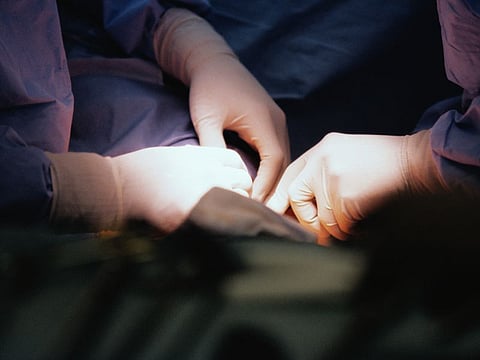THURSDAY, Feb. 28, 2019 (HealthDay News) -- Five risk factors are independently associated with surgical site infection among geriatric patients undergoing elective orthopedic surgery, according to a study published online Feb. 20 in the International Wound Journal.
Zhiquan Liang, from the First Hospital of Jilin University in Changchun, China, and colleagues retrospectively reviewed medical records (January 2014 through September 2017) for 4,818 patients ≥60 years old undergoing elective orthopedic surgeries in order to assess the risk for SSI.
The researchers found that within one postoperative year, 74 patients developed SSIs. The overall incidence of SSI was 3.64 percent, with 0.4 percent for deep infection and 1.1 percent for superficial infection. The most common causative pathogens were Staphylococcus aureus (53.2 percent) and coagulase-negative staphylococci (23.4 percent). Nearly half of S. aureus SSIs (12 of 25) were caused by methicillin-resistant Staphylococcus aureus. Diabetes mellitus (odds ratio [OR], 3.7), morbid obesity (OR, 2.6), tobacco smoking (OR, 4.2), surgical duration >75th percentile (OR, 1.9), and albumin <35 g/L (OR, 2.3) were independently associated with SSI.
"Preoperative active supplementation of nutrition, appropriate weight loss, smoking cessation, and optimization of the operative plan might be effective to reduce SSIs," the authors write.
Abstract/Full Text (subscription or payment may be required)


